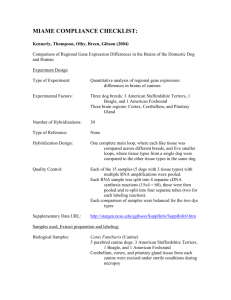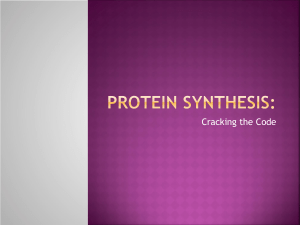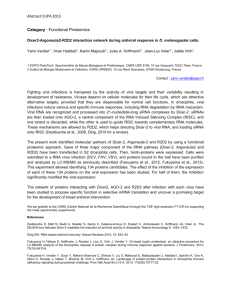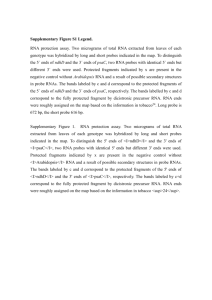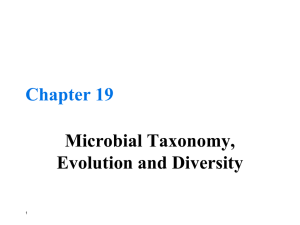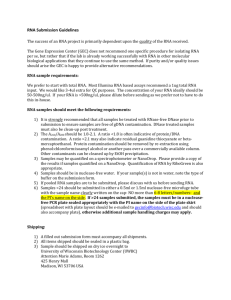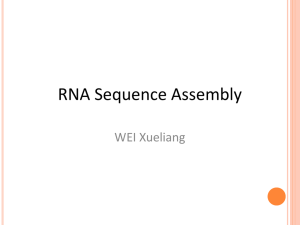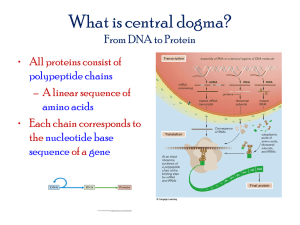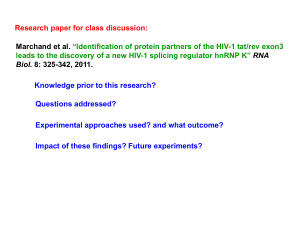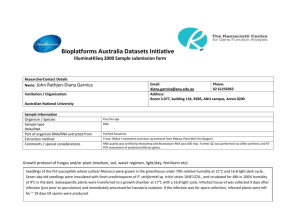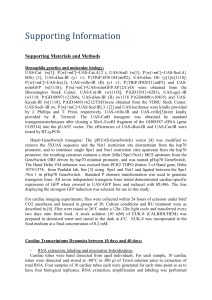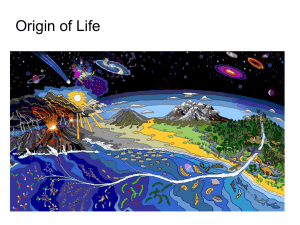Gurgel MIAME compliance
advertisement
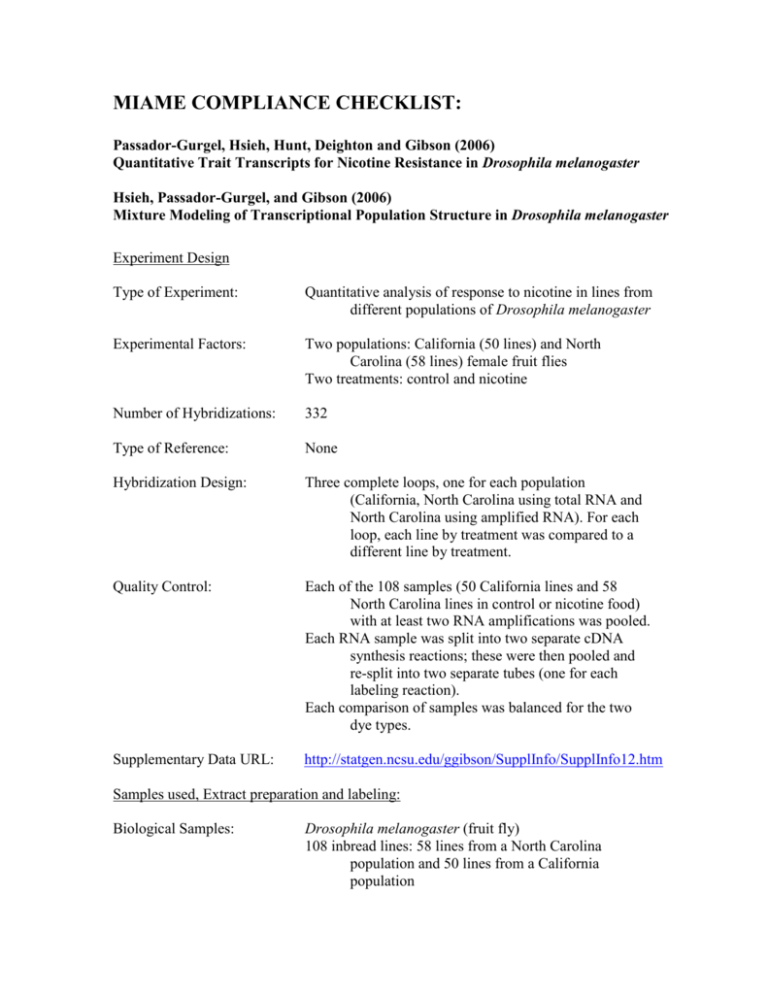
MIAME COMPLIANCE CHECKLIST: Passador-Gurgel, Hsieh, Hunt, Deighton and Gibson (2006) Quantitative Trait Transcripts for Nicotine Resistance in Drosophila melanogaster Hsieh, Passador-Gurgel, and Gibson (2006) Mixture Modeling of Transcriptional Population Structure in Drosophila melanogaster Experiment Design Type of Experiment: Quantitative analysis of response to nicotine in lines from different populations of Drosophila melanogaster Experimental Factors: Two populations: California (50 lines) and North Carolina (58 lines) female fruit flies Two treatments: control and nicotine Number of Hybridizations: 332 Type of Reference: None Hybridization Design: Three complete loops, one for each population (California, North Carolina using total RNA and North Carolina using amplified RNA). For each loop, each line by treatment was compared to a different line by treatment. Quality Control: Each of the 108 samples (50 California lines and 58 North Carolina lines in control or nicotine food) with at least two RNA amplifications was pooled. Each RNA sample was split into two separate cDNA synthesis reactions; these were then pooled and re-split into two separate tubes (one for each labeling reaction). Each comparison of samples was balanced for the two dye types. Supplementary Data URL: http://statgen.ncsu.edu/ggibson/SupplInfo/SupplInfo12.htm Samples used, Extract preparation and labeling: Biological Samples: Drosophila melanogaster (fruit fly) 108 inbread lines: 58 lines from a North Carolina population and 50 lines from a California population Heads from female flies from each line by treatment were used for RNA extraction Heads were isolated by sieving whole flies that had been frozen in liquid nitrogen through a fine gauze (710μm) onto Whatman filter paper and stored at -80C Biological Manipulations: RNA was extracted using TRIzol manufactures protocol (Invitrogen), and stored at –80C RNA was linear amplified using Agilent Low Input Fluorescent Linear Amplification Kit (5184-3523) *Protocol was modified by only performing a single round of amplification to get amplified complementary RNA Labeling Protocols: Labeled total or amplified RNA samples with Cy3 or Cy5 using aminoallyl indirect labeling protocol from The Institute for Genomic Research (SOP#M004) External Controls: None Hybridization procedures and parameters: Hybridization protocol: Hybridizations were performed for 20 hours at 42C. Washing Protocol: Washings were performed using a standard series of three high stringency washes Measurement data and specifications: Scanning and software: ScanArray 4000 Microarray Analysis System Scanner (Packard Bioscience). Six hundred sixty four (two for each array) acquired TIFF images were analyzed using UCSF Spot software (http://www.jainlab.org/downloads.html) Data Files: 332 raw data files in text format 3 data files for SAS import with log2 values for each array, with spots with high background noise and poor PCR amplification removed Type of Data: Raw fluorescence intensity values with background values subtracted Log base 2 transformations of raw subtracted fluorescence values Data Transformation: Subtracted background average from the spot raw intensity levels for each dye channel 2 -Step Mixed Model ANOVA: -Step 1: Compute relative fluorescence intensities (RFI), by removing overall dye and array effects -Step 2: Evaluate treatment specific effects, line specific effects, population specific effects, treatment and population interaction effects and line and treatment specific effects. Volcano plots were used to evaluate the significance of expression against the magnitude of the expression (plotted as negative log p-value against log base 2 values). Correlation analyses between control- or nicotine-induced expression and nicotine survival time were carried out using regression analyses. Final Gene Expression Data: http://statgen.ncsu.edu/ggibson/SupplInfo/SupplInfo12.htm http://statgen.ncsu.edu/ggibson/SupplInfo/SupplInfo13.htm Worksheet 1: Gene list with annotations Worksheet 2: Raw Data file Worksheet 3: Estimates of LSmeans from Mixed Model ANOVA Worksheet 4: Estimates of Differential Expression by Drug Worksheet 5: Estimates of Differential Expression by Population Array Design: General: cDNA arrays printed with a pin and loop printer on amino propyl silane coated slides (Corning Gaps II) UV Crosslinking binds DNA to the slide
